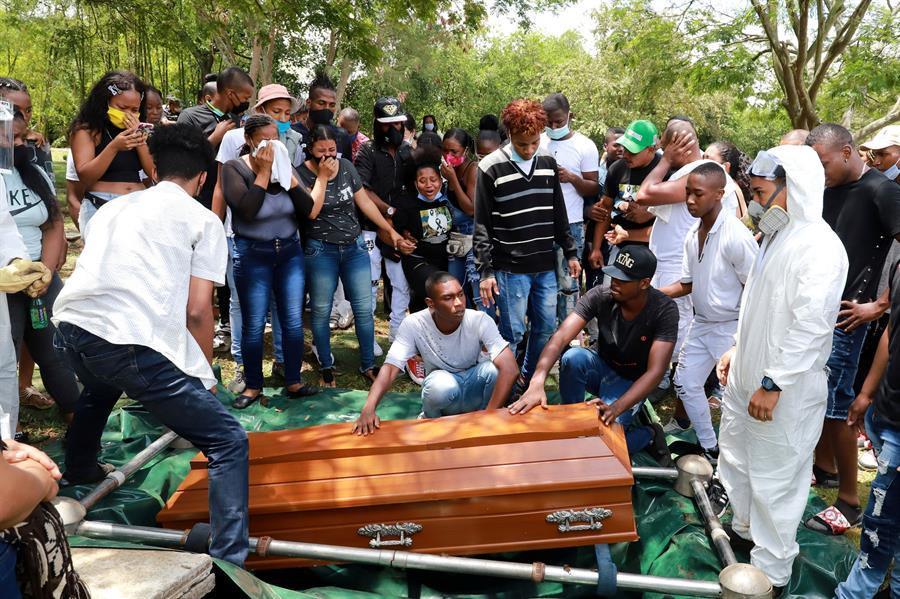Hard-hit countries step up virus measures as cases mount
LONDON- Agence France-Presse

Countries among the hardest hit by the coronavirus pandemic unveiled further measures on Aug. 14 to battle rising infections, as the number of cases worldwide passed 21 million.
The U.S. Department of Homeland Security said it was extending a ban on non-essential travel through border crossings with Canada and Mexico throughout most of September "to slow the spread" of the disease.
Meanwhile, Britain added France to its list of countries hit with a mandatory two-week quarantine for returning holidaymakers from Saturday, as Paris confronts a resurgent second wave of infections.
Confirmed cases in France reached levels not seen since May on Wednesday, Thursday and Friday, at over 2,500 new cases per day.
The rising threat prompted Paris police to announce Friday that compulsory mask-wearing outside would be extended to more areas of the French capital, including the famed Louvre museum and Champs-Elysee avenue.
"If the epidemiological situation deteriorates again, mask-wearing could become compulsory throughout the capital," Paris police warned, also banning gatherings and protests of more than 10 people which do not comply with distancing measures.
Neighbouring Spain said it would close all nightclubs and ban smoking in the street where people are unable to stay at a safe distance, after the country reported almost 3,000 cases in 24 hours on Thursday.
"Personally I think it’s stupid, it’s over the top," Madrid-based translator Julien Garcia told AFP about the smoking ban.
In Germany, the Robert Koch Institute for disease control added all of Spain except the Canary Islands to its list of regions where incoming travelers must show a negative test for COVID-19 or quarantine for 14 days.
Austria urged its citizens to return from popular Mediterranean destination Croatia before similar rules come into effect on Monday, while Serbia introduced mandatory testing for travelers from four neighboring countries.
And thousands of Albanians queued in their cars at the Greek border, hoping to squeeze across and return to work before tougher entry requirements designed to brake mounting infections come into effect.
Some people had been waiting for three days in the 20-kilometer (12-mile), 4,000-car jam, an Albanian police source said.
Around the world, the number of confirmed COVID-19 cases passed 21 million on Friday according to an AFP tally from official sources, with more than 755,000 fatalities.
The United States has suffered the most deaths at 168,318, followed by Brazil with 105,463, Mexico 55,293, and India with 48,040.
France and the Netherlands have now joined Spain and several other European nations on Britain’s quarantine list, having at first been granted exemptions.
French student Antoine, 23, had to rush back to Bristol, where he is at university, cutting short his summer holidays.
"I’m a waiter in a small cafe near college, I can’t afford to spend 14 days in the house," he said at London’s St Pancras railway station after getting off a Eurostar train.
French holidaymakers in the UK will be faced with tough choices of their own, as Paris swiftly announced a "reciprocal measure", although it was unclear when that might be imposed.
The Netherlands said it would advise against all but essential travel to Britain, but will not impose a quarantine of its own for incoming travelers.
A slew of data Friday revealed the scale of the economic impact of the virus and punishing lockdowns, with Hungary, Bulgaria, Romania, the Netherlands, Finland and Denmark all booking hefty hits to GDP in April-June.
"Never before" has the Dutch economy suffered shrinkage of 8.5 percent in a single quarter, the CBS statistics office said, while Denmark and Hungary both reported their worst slumps since the early 1990s.
Central European heavyweight Poland entered its first recession since the end of the communist era.
Hopes to break the cycle of outbreaks and lockdowns have turned to a vaccine, with Britain saying Friday it has secured access to another 90 million doses of two "promising" vaccines.
Vietnam meanwhile said it was looking to buy a bulk order of Russia’s "Sputnik" vaccine, although Western scientists have raised concerns about the speed of its development and suggested that researchers might be cutting corners.
And Washington said it would distribute any vaccine proven to be effective to all Americans for free.
Mexico said it and Argentina aim to have a vaccine available for Latin America - now the region with the worst virus toll and most cases - early next year under a production agreement with drug giant AstraZeneca.
New Zealand is battling its second outbreak of infections and extended a lockdown of its largest city Auckland by at least 12 days, giving health authorities more time to trace and contain a variant of the virus previously unseen in the country.
The Pacific island nation’s initial response to the pandemic was hailed a success, but a run of 102 days with no reported community transmission ended on Tuesday.
The country has now detected a cluster of 30 virus cases, and genomic tests indicated the latest infections were not the same strain of coronavirus recorded earlier this year.
















